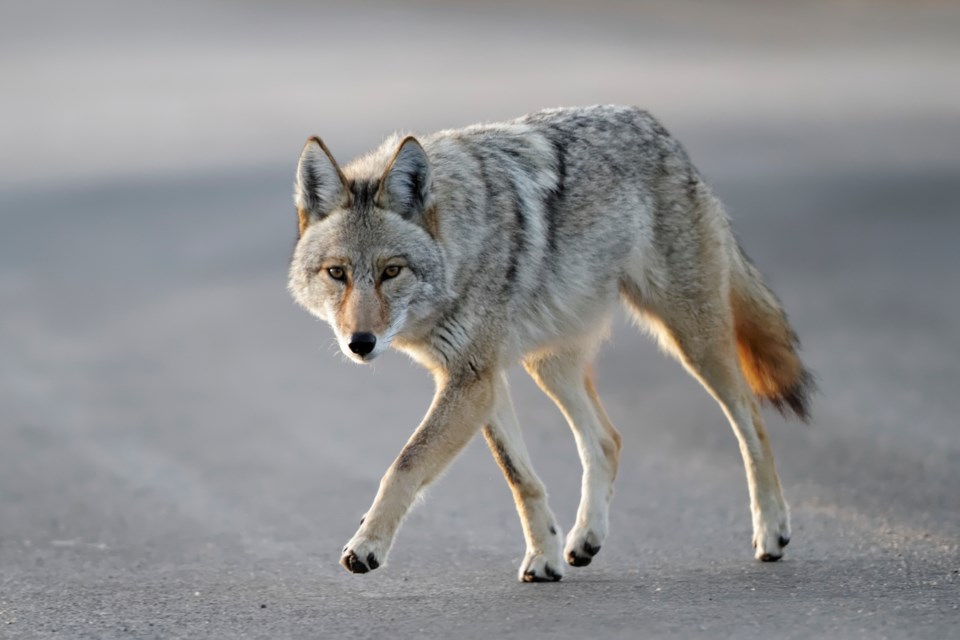While the Vancouver Park Board has been distracted by the issues surrounding the Strathcona Park homeless encampment, as well as the sale of the Vancouver Aquarium, coyotes have managed to officially take over Stanley Park.
It's their turf now.
Ask the man who was nearly dragged away by two coyotes on the seawall this past weekend after unintentionally running into one on his motorized scooter.
Ask the woman who was bitten by one last week while casually walking the same seawall. Or the man who was bitten while jogging it three weeks earlier.
Heck, ask the Park Board itself, which closed down trails in deference to the aggressive coyotes who continue nipping at and biting people.
The board's response to the attacks up until this point has been measured. They've temporarily closed some trails, worked with the BC Conservation Officer Service as they put down a couple of the animals, and started an awareness campaign educating people about how to deal with—and prevent—coyotes being aggressive.
Yet the animals continue to attack humans with increasing frequency. The BCCOS tells Vancouver Is Awesome that there have been 17 attacks by coyotes on humans in the park since December of 2020, and an even larger number of "concerning encounters" with them in that time.
It's not the fault of the animals; in more remote settings, the species is leery of getting near us and generally not inclined to attack people. However, their urban counterparts have become aggressive partly due to their carb-rich diet which is being given to them by humans, who the BCCOS says may be hand-feeding them, leading to them being less fearful of people.
The Fur-Bearers organization, which works to "promote solutions for wildlife coexistence in communities", has successfully advocated for more public awareness efforts so that the animals won't be further habituated and that we might go back to co-existing with them peacefully, but at this rate it seems imminent that a child will be injured or killed, like the toddler that was attacked in Burnaby a couple years back.
So what to do about these animals which first appeared in Stanley Park in 1988?
According to a 2001 City of Vancouver staff report which resulted in the formation of the Co-Existing with Coyotes program, capturing and relocating them is nearly impossible, as they are wary to enter traps and it's contrary to provincial wildlife policy to tranquilize them with darts, as it would present a public safety hazard.
The report concludes that "the most effective but controversial method for removal of [problem] coyotes is to shoot them."
That option sucks, and according to the BCCOS a cull is not currently on the table.
Their job is to protect animals, not shoot them. They tell us that it's not currently in the public interest to remove all coyotes from the park, and that they play an important role in the ecosystem there.
We reached out to a few Park Board Commissioners, but none were willing to speak to the issue for this column. The board can't trigger a cull (that decision would involve B.C.'s Chief Veterinarian and the Ministry of Forests and Lands), however sooner or later the public may demand that they advocate for a harsh solution.
If the efforts to educate the public don't result in changes in the behaviour of these animals and somebody gets seriously hurt, it may be time to shoot the coyotes.
And nobody wants that.
So two things:
1) Don't feed coyotes unless you want to see them all get shot. A fed coyote is a dead coyote; two have already been put down in Stanley Park.
2) If you see somebody feeding a coyote in the park call the BC Conservation Officer Service's Report All Poachers and Polluters (RAPP) line at 1-877-952-7277. There's a Conservation Officer who could be at Stanley Park within 5 minutes of your call.



